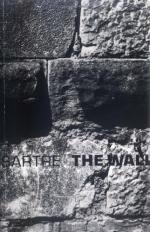|
This section contains 3,244 words (approx. 11 pages at 300 words per page) |

|
SOURCE: "The Sense of Ending: Sartre's 'The Wall'," in Modern Language Studies, Vol. XVIII, No. 3, Summer, 1988, pp. 46-52.
In the following essay, Argyros responds to critics who consider the conclusion of the story "The Wall" flawed by arguing that Sartre's ironic ending is a "result of the marriage of the theoretical presuppositions of existentialism with the rules of narrative prose."
Many readers of Sartre, both admirers and detractors, view the ending of his short story "The Wall" as a flaw. Two examples will illustrate this rather widely held opinion. Paul P. Somers Jr., in an article denigrating Sartre in comparison to Camus, argues: "In discussing Sartre's capacity for irony, we should keep in mind the sledge-hammer obviousness of the trick ending in his short story "The Wall" (The French Review, Vol. xlii, No. 5, April 1969). A much more favorably inclined Maurice Cranston nevertheless makes a similar point in Jean-Paul...
|
This section contains 3,244 words (approx. 11 pages at 300 words per page) |

|


